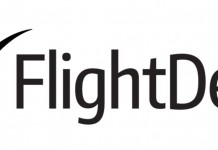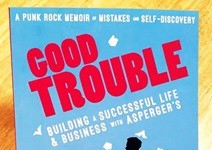 Many publishing insiders and authors have been discussing Random House over the past week. The company might wish it had stayed out of the news as criticisms came down over its digital imprints, especially Hydra, which handles science fiction.
Many publishing insiders and authors have been discussing Random House over the past week. The company might wish it had stayed out of the news as criticisms came down over its digital imprints, especially Hydra, which handles science fiction.
In case you missed the news, here’s the basic version: Contract specifications for Hydra were made public, and many realized the terms were not ideal for authors. The digital imprints offered a publishing package with no advance, and with net proceeds that would be split 50/50. In addition, the author would have to pay a one-time fee for set-up costs such as editing, cover art and design. Those costs would be taken out of the sales of the e-books. The author would also give up the life-of-copyright contract that includes primary and subsidiary rights.
Throughout the industry, and among the self-publishing community in particular, Random House’s new imprints have not been well received.
In the wake of the constant criticism, the company recently announced a change to its contracts.
“In response to recent constructive discussions with authors, agents and writers’ groups, including the Horror Writers Association, we are making adjustments to our proposed terms for authors with Random House’s new digital imprints, Hydra, Alibi, Loveswept, and Flirt. Prospective authors will have a choice of two models under which to publish: a profit share or an advance plus royalty,” Random House said in an announcement.
The profit share model offers no advance and will split the profits 50/50. Deductions will still be taken out based on costs for the production and shipping of physical books. However, Random House will cover the cost of production of digital editions.
The second model offers a more traditional contract, with a standard royalty rate and 25 percent of net receipts. Authors will be offered an agreed upon advance against royalties, and the digital imprints will cover costs in all formats.
Jeremy Greenfield of Digital Book World got a chance to speak to Allison Dobson, vice president and digital publishing director for the new imprints.
“For these imprints, the author will be making some decisions,” Dobson told Greenfield. “In all cases at Random House, we’re always consulting with the author and the author is the partner in all of our plans. In a profit-share model, the author will be the steward of the P&L [profit and loss statement] in a way because we’re asking the author to share in certain costs. In general, they also have an option to not worry about that specifically and take a different model [the advance plus royalty model] and that’s a much more traditional model.”
Of course, Dobson said the response to the changes have been positive from current authors who are under the old agreement. But the company would amend any contracts.
In the meantime, Dobson hopes clarity will move Hydra, Flirt, Loveswept and Alibi forward.
“We heard some concerns from authors and agents and writers groups about deductions off the profit share. I think they were concerned because they didn’t understand our offering,” Dobson said. “This was an attempt to make it crystal clear—which was always the intention—what would and would not be deducted under a profit share agreement.”
Read the full interview with Dobson here.
Author John Scalzi, an outspoken critic of the first Hydra deal, wrote the following on his blog:
“We” didn’t win; Random House didn’t lose—or vice versa. What happened was a conversation on where writers and publishers are at this moment in history, in public and in real time. Random House listened and made adjustments based on the feedback it got. This is a praiseworthy event; I am glad they did it, and they deserve credit and thanks for doing so.

































